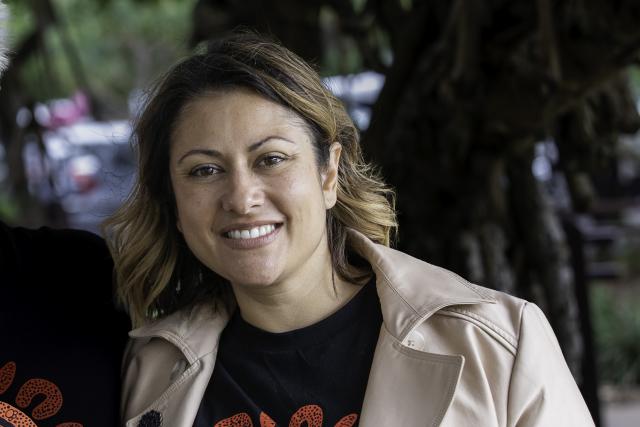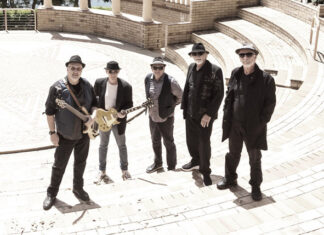It’s really great to be back on the Sunshine Coast, where I lived for many years.
I had my kids in Buderim Hospital. Now I’m living in Larrakia country in the Northern Territory.
My “why” is this: I am raising two beautiful children. They’re now teenagers, Aboriginal teenagers being raised in the Northern Territory. It is both beautiful and terrifying to do that. It is beautiful because they are seeing amazing things. They are walking with Larrakia people. They are learning Yolŋu Matha, the language in Arnhem Land. They are living this really beautiful, rich life. But statistics tell me that Aboriginal teenagers in Northern Territory are more likely to go to prison than university.
So this is what I am up against as a mum. I’ve been outrunning the statistics my entire life. I’ve been swimming upstream my entire life. It’s exhausting. Sometimes I make good ground. I’ve got my own home. That was huge to me because I grew up in Aboriginal housing. It meant we had no control over anything. We’d come home from school, and we’d be told we’re moving, we’ve got to go again.
I’ve worked in Queensland and in the NT in youth justice. I worked in the Don Dale Youth Detention Centre at times. I worked with kids who were the product of the NT intervention. Kids born into a time when millions and millions of dollars of funding was abruptly cut, which took away services like parenting support.
You see the thing is, there’s been this narrative for the last couple of hundred years that Aboriginal people are not good parents. And that was seen in policies like removing children. The Stolen Generations told us that we weren’t good parents. The NT intervention told us that we weren’t good parents.
Even here on the Sunshine Coast when I had my own children, I ticked the box as being Aboriginal. So instead of being able to go to the community health centre, I had a nurse and a community support worker visit me weekly to check on me. I said, “Don’t come here, I want to go to the clinic because I want to meet other mums”. I was told, “Oh no, this is the service we provide for Aboriginal people”. So that made me think, I must need to be watched, people don’t trust me with my children.
I’ve worked in these spaces and lived through this as a person. My own lived experience tells me that we shouldn’t expect the next generation to just keep trying to outrun statistics and trying to swim upstream against the tide. We can actually all come together and do something about this.
When I first read the Uluru Statement from the Heart what really stood out for me – what picked me up off the ground – was that it was the first time it had ever dawned on me that Australia could unite and make this change.
As I go around Australia campaigning, I like to send pictures of the crowd back to my kids in Darwin. I’m showing them that Australia is showing up for them. That Australia is showing up with them. With me. I stood on a stage in Hobart at the Walk for Yes. Just under 1000 people registered and just under 5000 showed up. I got on stage and I looked around. There were young people, there were older people, there were Aboriginal people, there were non-Aboriginal people, migrant communities, kids. And it just hit me. It was absolute love and connection. I’ve never felt so included and connected and united in my entire life. So that’s what I’m taking from this campaign as well.
Hopefully on 14 October my mob get a Voice. But I know we’ve already gotten so much from this experience. And I’m really looking forward to keeping that and building on that after the referendum.
This is just the beginning.
NOTE: Noosa Today has not verified the contributed content above. All articles appearing under this banner can be fact-checked at these websites:
abc.net.au/news/2023-07-19/fact-check-yes-no-campaign-pamphlets-








